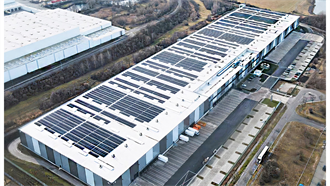PropertyEU hosted a special event, ‘The Future of Logistics Real Estate in Europe’, at Mipim 2019. Buck Consultants International and Logistics Capital Partners (LPC) sponsored the private discussion which attracted a host of top logistics players in the European market.
The wide-ranging interactive discussion was kicked off by a presentation from René Buck, CEO of Buck Consultants International.
He explained demand for logistics real estate will continue to grow over the next three years fuelled by moderate economic growth and acceleration of e-commerce sales.
This means for tenants there will be less choice between buildings to be leased or land plots to be acquired, as vacancies all over Europe decrease and logistics hotspots struggle with supply of new logistics parks.
‘Labour availability has become a critical location factor for manufacturing companies, e-tailers and logistics services providers when considering a new distribution centre,’ said Buck, drawing on the firm’s data and Regional Labor Market Assessment Tool.
Brexit remains a concern and over the midterm the growing number of trade disputes globally was also worrisome, he highlighted. ‘For the next 5-10 years intensifying trade disputes between the major trade blocs in the world (US, Europe, China, Asia) could hurt the logistics real estate market substantially.’
However, investments in logistics/industrial real estate in Europe have reached record highs over the last three years as the returns on investments in logistics (6%) are better than investments in offices or retail real estate (between 4 and 5%).
Those that participated in a follow-on debate included Logicor, Tritax Big Box, Iron Mountain, KBC Real Estate, Segro, Montea, WDP, SIOR, MG Real Estate, and Groep Heylen.
Buck Consultants International expects overall rents of warehouses to increase and yields to reduce further. ‘The perspective is imperative,’ said Buck. ‘Differences between logistics regions in Europe regarding rent levels, vacancy rates, yields and labour markets are still substantial and will not diminish. But that also offers opportunities for developers and investors. The importance of agile supply chains for companies increases, but the network design differs considerably between sectors of industry. That means that the logistics real estate industry has to respond by better addressing the fast changes in customer requirements for more flexible, sustainable and automated and robotized warehouses.’



































